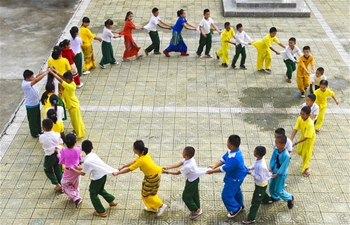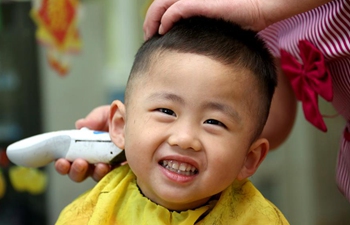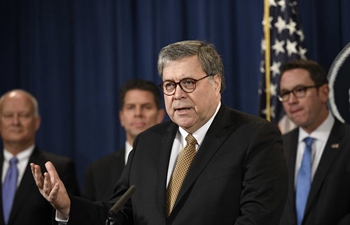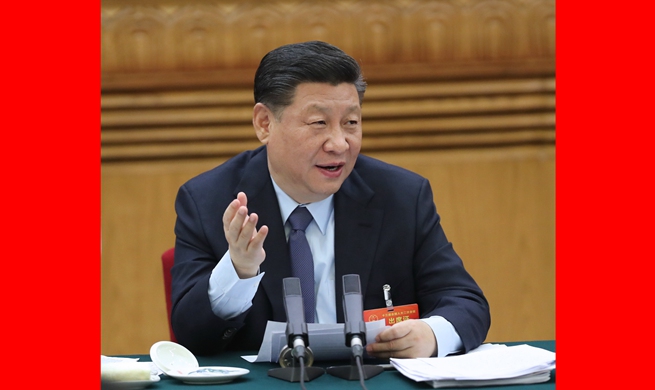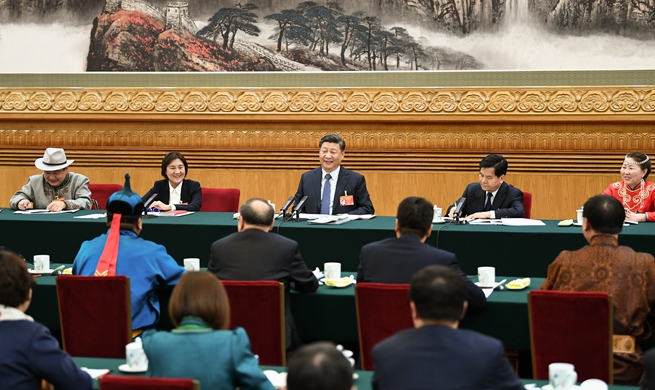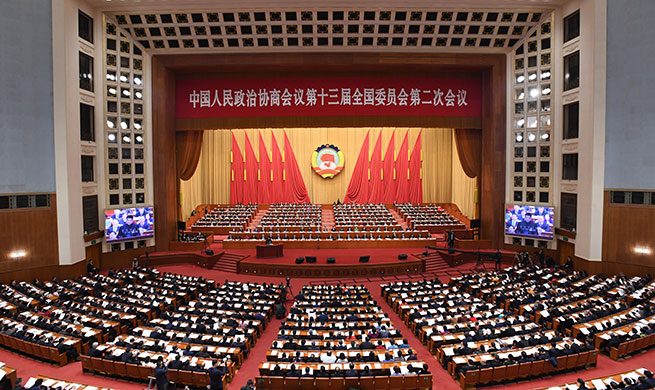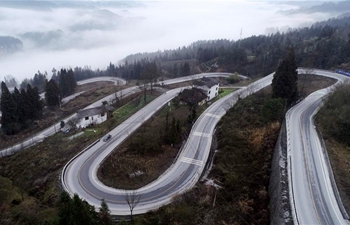UNITED NATIONS, March 8 (Xinhua) -- The South Sudan peace agreement signed in September 2018 continues to hold with positive changes observed, but challenges remain for the peace process.
At a Security Council meeting held Friday here on South Sudan, the United Nations' (UN) envoy for South Sudan and other member states, while recognizing the significance of the agreement, called for joint efforts to maintain the momentum and resolve difficult issues, including security arrangements.
POSITIVE DEVELOPMENTS
David Shearer, the special representative of the secretary-general for South Sudan, outlined four positive changes since the signing of the ceasefire agreement by the South Sudanese government and opposition groups in Ethiopia in September 2018.
"First, opposition politicians from different parties are moving freely around Juba without hindrance and are taking part in the various meetings as part of the peace process," Shearer said.
He praised the South Sudanese government for creating the space and security conditions for this to happen, as well as the opposition leaders for returning and participating in the peace process.
Second, he noted over 71 meetings and rapprochements have been held across the country, enabling the government and the main opposition Sudan People's Liberation Movement-in-Opposition (SPLM-IO) to meet. "The enthusiasm for peace amongst people is palpable," Shearer said.
Third, he said political violence has diminished significantly in South Sudan with the exception of Central Equatoria state, where fighting close to Yei between some armed forces has intensified.
Fourth, for the first time in three years, "people are expressing a willingness to return home," he said, adding that the United Nations and its partners are supporting South Sudanese refugees and internally displaced persons (IDPs) to return home.
He told the council that an estimated 135,000 refugees have returned to South Sudan, and that within three months after the September peace deal, the number of people in protection of civilians (PoC) sites dropped from about 205,000 to 193,000.
The UN peacekeeping mission in the country, or UNMISS, has undertaken frequent "look and see" trips, helicoptering people to locations to assess for themselves if the security situation is fit for them to return.
Meanwhile, humanitarian agencies are programming agricultural, education and health support in areas of expected high return. The peacekeepers are increasing their patrol of the areas of anticipated return to boost confidence.
Many delegates at the meeting acknowledged and welcomed the improvement of the situation in South Sudan, calling for maintaining the momentum that the peace deal has generated.
South Sudan's Permanent Representative to the United Nations Akuei Bona Malwal said his country's security, peace and economic situation has "improved noticeably" since the signing of the agreement.
Implementation is progressing "slowly but surely," he added, noting that President Salva Kiir is touring the Greater Bahr El Ghazal region in the company with opposition leaders.
Refugees are now returning voluntarily in large numbers and the economy is in the early stages of recovery, he said, adding that consumer goods are available and prices are dropping in Juba's markets.
Russia's Permanent Representative to the United Nations Vassily Nebenzia described the agreement as a demonstration of the principle of African solutions to African problems.
CHALLENGES REMAIN
Friday's meeting also saw the UN special envoy and the member state delegates pointing to lingering unresolved issues.
As the September peace deal stipulates that a transitional government should take over the role of the pre-transitional government by May 12, there are less than three months left.
Shearer said the South Sudanese parties are "well behind" in implementing the deal and that key issues have been delayed.
He cited "fundamental issues still to be resolved" including determining the number and borders of states, forming an armed force to be deployed in the capital Juba and major towns, providing security for opposition leaders returning from exile, and drafting a new constitution.
Jonathan Cohen, U.S. acting permanent representative to the United Nations, noted the failure of previous South Sudanese accords and called upon the African government to demonstrate its full commitment.
South Sudan descended into conflict in December 2013 when forces loyal to Kiir started battling those loyal to Riek Machar, his former vice president.
After agreeing on a deal in 2015, Machar returned to South Sudan from exile in 2016, only to flee again after a major battle broke out in Juba.
Christoph Heusgen, German permanent representative to the United Nations, said the "peace process is at a crossroads" as the May 12 deadline for forming a transitional government approaches, noting key questions about security arrangements remain open.
Echoing Shearer's concern, Heusgen pointed to the lack of progress in the establishment of security services as well as the number and boundaries of states.
Noting the progress and challenges in South Sudan, Wu Haitao, China's deputy permanent representative to the United Nations, called on the international community to push all parties for further implementation of the peace agreement.
While some worry a return to violence is inevitable, Shearer said "we don't concur," arguing the revitalized deal "has broader buy-in from parties" than the 2015 agreement and "is widely embraced by the population."
South Sudan's UN envoy said while challenges remain, including inadequate funding, his government will carry on, "using whatever means and resources are available."
